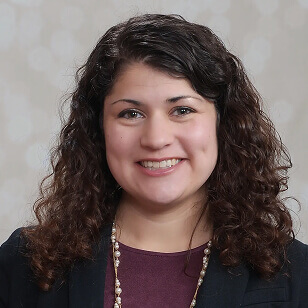Some stimulant and non-stimulant ADHD medications, such as
Highlights
- Many ADHD medications continue to be in shortage in 2026.
- Unfortunately, these drug shortages mean that if you live with ADHD, you may not be able to get the treatment you’re prescribed as easily as before.
- If an ADHD medication you need is facing a shortage, talk to your provider right away. They can recommend other pharmacies where the medication may be in stock or discuss other treatment options with you while you wait for the shortage to end.
Living with attention-deficit hyperactivity disorder (ADHD) is hard enough as it is. But when the ADHD medications you need to manage your symptoms go into shortage, it can start to feel overwhelming.
Unfortunately, that’s been the experience of millions of Americans who live with ADHD, who aren’t able to get their prescriptions filled due to ongoing national drug shortages. Thankfully, there are options available to you even if the medication you usually take is unavailable, and you don’t need to go without any support at all.
But why is the ADHD medication shortage still happening, and what steps can you take if your prescription can’t be filled? Read on for all of the information you may need.
Causes of the ADHD Medication Shortage
The explanation for why there is an ongoing shortage of ADHD medication isn’t as simple as you might think. Many different factors have come together to create what experts are calling a “perfect storm” of circumstances leading to the shortage.
The two main factors that have combined include an increasing demand for these medications and federal limits to supply. The pandemic-related changes to how ADHD medication can be prescribed has had an effect too.
All these challenges, as well as regulatory and supply chain issues, have turned shortages into a global problem, affecting many countries, not just the US. Let’s take a closer look at some causes.
Cause #1 – Increasing Demand
First, more and more people are requesting ADHD medication as diagnosis and treatment rates improve. This condition is historically underdiagnosed, especially in girls and women, which has led many people to deal with an undiagnosed condition until adulthood. In recent years, as advocates have battled misinformation and stigma around ADHD, more people have gotten the diagnosis they need.
This is a good thing — people with attention-deficit hyperactivity disorder need diagnosis and treatment. But, unfortunately, it also means that the demand for medications like Adderall and Ritalin
On top of this legitimate reason to need ADHD medication, there is also a growing demand by recreational users of these drugs. When more people use stimulant medications recreationally, there is less supply available for people diagnosed with the disorder and requiring medicine to manage their symptoms. The recreational use of prescription ADHD medications is potentially dangerous; they should only be used as prescribed by a healthcare provider.
Cause #2 – Decreasing Supply
The most effective ADHD medications are stimulants, including Ritalin, Adderall, and Concerta. These medications are classified as
Legal manufacturers of controlled substances (like some ADHD medications) need to follow stringent quotas, or limits, set by the Drug Enforcement Administration (DEA). These limits can prevent manufacturers from being able to make enough of these medications to meet the growing demand, which causes a stimulant shortage.
In the fall of 2025, the DEA officially increased the quotas for the production of ADHD medications like Adderall and Ritalin (and their generic forms). The hope is that this will help increase supply to meet the demand.

Cause #3 – Pandemic-Related Legal Changes
The COVID-19 pandemic also brought along legal changes in how ADHD can be treated in the United States. Before the pandemic, the
To make it easier for people to get access to needed treatment during the pandemic, the Drug Enforcement Administration (DEA) temporarily lifted that requirement to make it possible to get stimulant prescriptions online. These waivers have been extended again through the end of 2026.
This means that some barriers to treatment were lifted, and many more people were able to more easily get access to ADHD medication. Because so many more people were getting prescriptions for stimulant medication, this contributed to the shortage. Non-stimulant options never faced the level of shortages that stimulant medications did for this reason.
Is Shortage Affecting Generics, Too?
Unfortunately, in many cases, the shortage of stimulant ADHD medications is affecting generics too — sometimes even more than brand-name options. For example, brand-name methylphenidate medications (Ritalin and Concerta) are available, while their generic counterparts are facing a shortage.
In the case of Adderall, brand-name Adderall
This creates a serious problem for people who live with ADHD and depend on their medications. Generics are sold at a much lower price than brand-name medications. Due to the price differences, the demand for generics is often higher than it is for brand name, which can make shortages even more severe.
Insurance plans also may cover generic versions of medications while not offering any reimbursement for brand-name. When generics face a shortage, people with ADHD may not have a sustainable and affordable way to get the ADHD treatment they need, even if brand-name medicines are available.
ADHD Medication Shortage List
It can be confusing to keep up with the exact ADHD medications that are facing a shortage. Luckily, the FDA
Simply access the above-mentioned database and type in the name of the ingredient — not the brand name — in the search bar. (ex: Search for methylphenidate, not Ritalin). Shortages can change quickly, so it’s important to stay informed.
Some medications aren’t reported as in a shortage by the FDA, but other organizations, like the
Use this table to see what medicines are in a shortage as of the publication of this article (January 2026). As you’ll see, most of the shortages are affecting generic medications, not the brand names. The information presented here is rapidly changing, for the most up to date information review the FDA online database and the
| Medication name | Shortage status |
| Ritalin | Available (no shortage) |
| Ritalin LA, Ritalin SR | No shortage reported by the FDA, but the American Society of Health-System Pharmacists reports a shortage |
| Generic methylphenidate hydrochloride immediate-release | No shortage reported by the FDA, but the American Society of Health-System Pharmacists reports a shortage |
| Generic methylphenidate hydrochloride extended-release (generic Concerta and Ritalin-SR) | Shortage (unavailable or limited availability from many suppliers, but not all) |
| Concerta extended-release tablet | Available (no shortage) |
| Strattera (brand) | Discontinued |
| Atomoxetine (generic Strattera) | Available (no shortage) |
| Adderall (immediate-release) | Discontinued in the U.S. |
| Adderall XR | Available (no shortage) |
| Generic mixed amphetamine salts (generic Adderall) | Shortage (unavailable or limited availability from many suppliers, but not all) |
| Vyvanse | Available (no shortage) |
| Generic lisdexamfetamine dimesylate (generic Vyvanse) | Shortage (unavailable or limited availability from many suppliers, but not all) |
| Desoxyn | Available (no shortage) |
| Generic methamphetamine hydrochloride tablets (generic Desoxyn) | Shortage (reported as “in shortage,” but available from all suppliers as of January 2026) |
| Qelbree | Available (no shortage) |
| Intuniv | Available (no shortage) |
| Daytrana | Shortage (reported as “in shortage,” but available from all suppliers as of January 2026) |
| Generic methylphenidate extended-release film (generic Daytrana) | Shortage (reported as “in shortage,” but available from all suppliers as of January 2026) |
| Focalin | No shortage reported by the FDA, but the American Society of Health-System Pharmacists reports a shortage |
| Mydayis | No shortage reported by the FDA, but the American Society of Health-System Pharmacists reports a shortage |
| Azstarys | Available (no shortage) |
| Dexedrine | No shortage reported by the FDA, but the American Society of Health-System Pharmacists reports a shortage |
| Dextroamphetamine (generic Dexedrine) | Shortage reported by the FDA and the American Society of Health-System Pharmacists |
What Medications Are Not in Shortage?
Not all ADHD medications are facing a shortage, and most of the most common brand names are currently available. ADHD medications that are currently available (as of the time of publication, January 2026) include:
- Adderall XR
- Ritalin, Ritalin LA, Ritalin SR
- Concerta
- Vyvanse
- Atomoxetine (generic Strattera)
- Qelbree
- Intuniv
- Desoxyn
- Azstarys
Keep in mind that drug shortage information can change rapidly. Some medications may start to face a shortage in months or even weeks, while others can become available. For example, Adderall was in a severe shortage just a few years ago.
Shortages also depend greatly on your location, so you might find that a shortage affects your local area or state while not others. Just because a shortage hasn’t yet been reported to the FDA doesn’t guarantee that you’ll be able to find that medication at your pharmacy.
How Does an Unfilled ADHD Prescription Affect Me as a Patient?
If you’re diagnosed with ADHD, then you likely need treatment to manage your symptoms. The research shows that
When federal drug shortages affect your ability to get the medications you need, then your ADHD symptoms can go unmanaged for long periods of time. Some of the risks of living with untreated ADHD include:
- An increased risk of substance use disorder. People with ADHD often self-medicate with unsafe and illegal stimulant drugs to try to get the same effect.
- Problems at work, such as not being able to meet deadlines or keep track of time.
- Relationship problems resulting from unmanaged ADHD symptoms like impulsivity or emotional outbursts.
- An increased risk of co-occurring mental health problems like anxiety and depression.
- Engaging in risky and unsafe behaviors like reckless driving or spending too much money.
On top of that, suddenly stopping ADHD medication can come with its own set of withdrawal symptoms, including depression, irritability, and insomnia. Most people who stop these medications gradually, as instructed, don’t go through withdrawal, but there is a risk.
How Can People With ADHD Get Their Prescriptions?
If you think you have ADHD, there are three main steps to obtaining medication:
- Getting assessed and diagnosed
- Getting a prescription if deemed necessary
- Picking up your medication
Assessment and Diagnosis
First, you’ll need to get an ADHD diagnosis if you don’t have one already. Getting the right diagnosis is the initial step to receiving the treatment you need. On MEDvidi, you can go through an ADHD assessment through a video visit, which removes the hassle of scheduling and attending your appointment in person.
Keep in mind that only qualified practitioners like psychiatrists, medical doctors like MDs or DOs, nurse practitioners, and physician assistants are able to prescribe these medications. Also, they can do so only after conducting an assessment and defining if medicine is the most appropriate treatment option.
Note that booking an appointment doesn’t guarantee obtaining a prescription. The decision is at the discretion of your healthcare provider.
Obtain a Prescription
If your healthcare provider diagnoses you with attention-deficit hyperactivity disorder, then they’ll talk to you about different treatment options. They will explain the pros and cons of each of them and work with you to make the most appropriate choice for your needs and symptoms.
Although stimulant medications are the most effective according to research, they’re not for everyone. There are also non-stimulant ADHD medications that have helped many people.
Previously, you needed to have at least one in-person evaluation to be prescribed stimulants. Today, because of the pandemic waivers, there is more flexibility, and you can get a prescription online. But some providers may still prefer to meet in person.
Ask about any potential drug shortages during your appointment to make sure you’re able to get whatever medication you’re prescribed.
If you already have a diagnosis but have run out of your medication, contact your provider to schedule an appointment, go through a follow-up assessment, and receive a prescription refill.

Pick Up Prescription
Lastly, you’ll go to the pharmacy to pick up your medication. You can also choose to have your prescription sent to an online pharmacy and get your medication sent to your home. If there is an unexpected shortage of the medication you’re prescribed, contact your provider right away to discuss other options.
What to Do in the Case of an ADHD Medication Shortage
If a medication you need is in shortage, that doesn’t necessarily mean that you need to go without treatment completely. There are alternatives. You might not be able to get the exact medication you need right now, but there are several steps you can take to problem-solve.
First, make sure you request your prescription refill on time and discuss the option of partial refills, if necessary. You may need to think about a temporary alternative until your regular medication is available again. Below are a few more things to consider.
Call Ahead
It can be incredibly frustrating to arrive to pick up your medication, only to be told it’s unavailable. You can get around this by calling pharmacies ahead and asking whether the medications you need are in stock or backorder.
Pharmacists may not always be able to give you this information over the phone, but you can ask them to look up your name in a state prescription monitoring program and ask questions you might have about when your medication might be available.
Note that medication shortages affect not only patients, but also pharmacists who have to face an increased workload. Keeping communication clear and accepting the fact that you might not get immediate answers is essential to finding a solution.
Ask Your Provider for Other Pharmacy Recommendations
Your provider may know of other pharmacies that do have your medication in stock. Sometimes, shortages only affect certain areas or even certain pharmacy chains. So if it’s not available at your regular pharmacy, it might be helpful to shop around.
Sometimes, smaller pharmacies will still have the medication stocked even if larger chains are out. Also, make sure to check hospital pharmacies — they may have medications that retail pharmacies don’t.
Ask Your Provider About Alternative Treatments
If the medication is in short supply nationwide and there’s no pharmacy where you can get it, your provider can talk to you about switching medications to another one that can support you, at least in the interim of the shortage.
For example, they could recommend generics or different brands. They could even change the dosage of your medication slightly; sometimes, one dosage is in short supply while others aren’t. For example, you might be able to get 20 mg tablets even though 40 mg tablets are unavailable. They could also suggest other treatment methods, such as behavioral therapy or lifestyle changes, that can help you manage your symptoms in the meantime.
No matter what, resist the urge to self-medicate with other stimulants. This can heighten your risk of substance use disorder, make ADHD symptoms worse in the long run, and lead to legal consequences.
Work With Your Provider on Taking a Break
Regardless of medication shortages, some people choose to take breaks from stimulant medication. The reasons for this are unique to each individual. You could simply not need the medication as much during certain times of the year (for example, children and college students with ADHD might not need medication during summer break). Or you might want a break from some of the side effects.
You should never stop taking ADHD medication without consulting with your healthcare provider who’s overseeing your treatment. Withdrawing suddenly from ADHD medication without medical supervision could be dangerous. But if you’re interested in taking a “drug holiday” while waiting for your medication to be back in stock, your provider can help you do it safely.
Schedule a Follow-Up Appointment as Soon as Possible
Try to get a follow-up appointment with your provider as soon as possible, even if you typically only see them once a month. Getting an earlier appointment can provide an opportunity to review your treatment plan and check again for medication options that aren’t affected by the shortage.
Following up with your provider on a more regular basis can also give you time to tell them about how your symptoms are affecting you without your medication. If you’ve decided to take a break from medication altogether while waiting for the shortage to end, having regular check-ins can make sure you’re coping well in the interim.
Summing Up
Unfortunately, drug shortages continue to complicate treatment for people across the U.S. who live with ADHD and need medication. But these shortages have improved in the past few years, and many of the most common and effective medications are now available.
Even if you can’t get the medication you need, you can talk to your ADHD treatment provider, who can recommend alternative options that can help. With treatment, you can manage your symptoms and live a fulfilling and happy life.
FAQs
Is there still an Adderall shortage?
Brand-name Adderall XR is no longer facing a shortage, but its generic forms are.
When will the Adderall shortage end?
Adderall XR is not currently in shortage. It’s unknown when, exactly, the generic Adderall (mixed amphetamine salts) shortage will end.
What to do when Vyvanse is out of stock?
Talk to your prescriber immediately so that they can adjust your prescription. You can also ask other pharmacies if they have Vyvanse in stock.
How to get Ritalin during a shortage?
The generic form of Ritalin is facing a shortage, so you may be able to still access the brand-name version. If not, talk to your provider about alternative options.
Why is Concerta out of stock everywhere?
Different ADHD medications, including Concerta, go out of stock periodically for different reasons — it has to do with decreasing supply and increasing demand.
What to do if you run out of ADHD medication?
Talk to your healthcare provider as soon as possible about how to get a new prescription. You shouldn’t go without prescribed medication. If you’ve run out of ADHD medication early, you may not be able to get your next month’s doses early.













